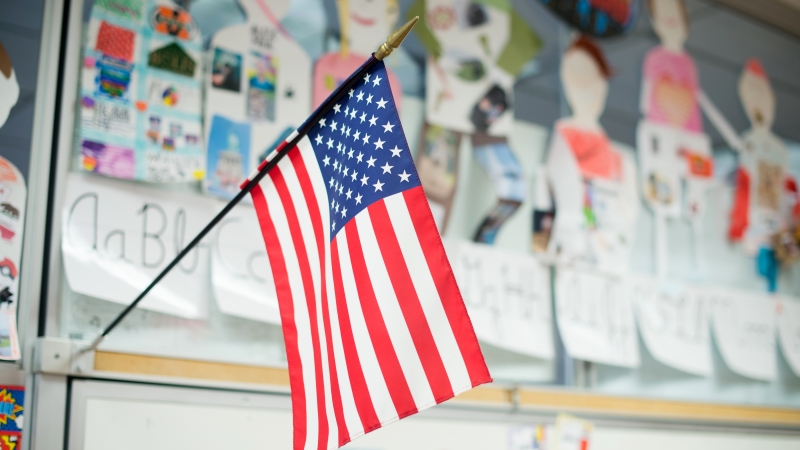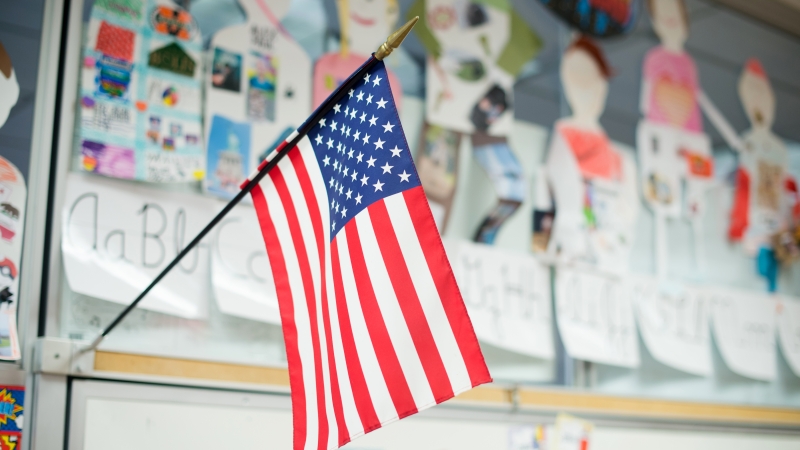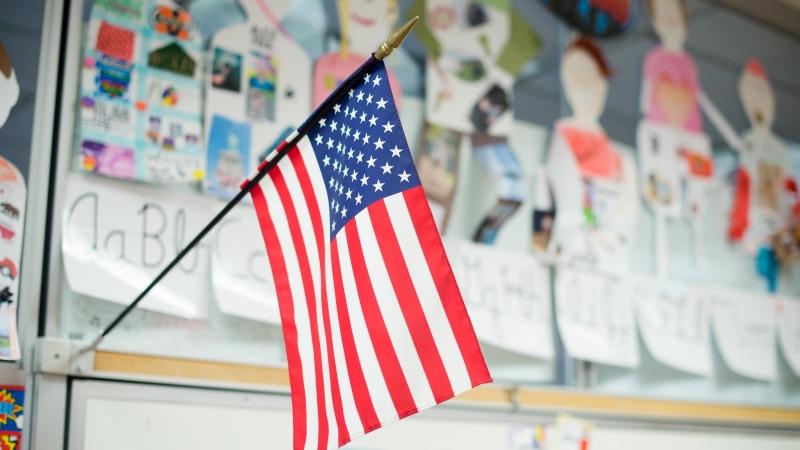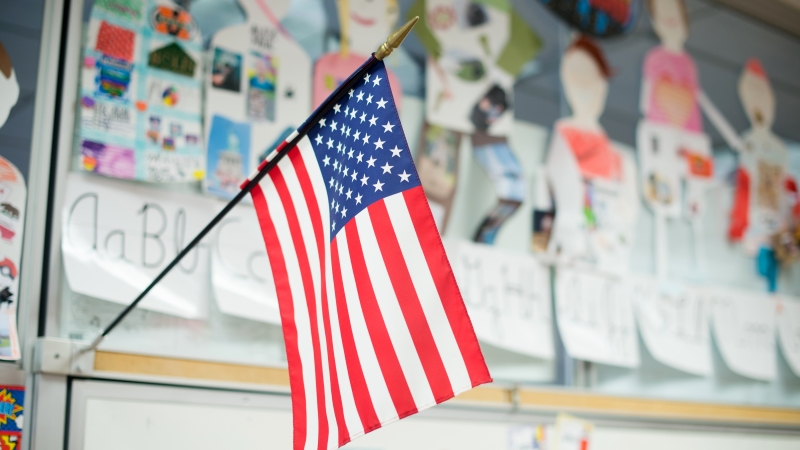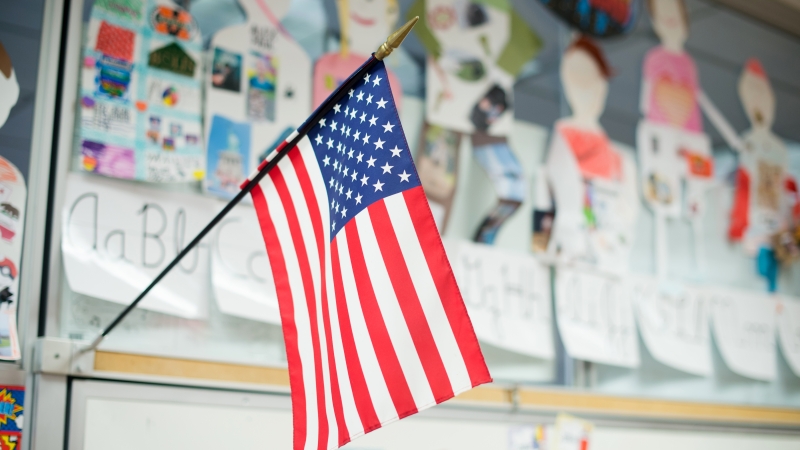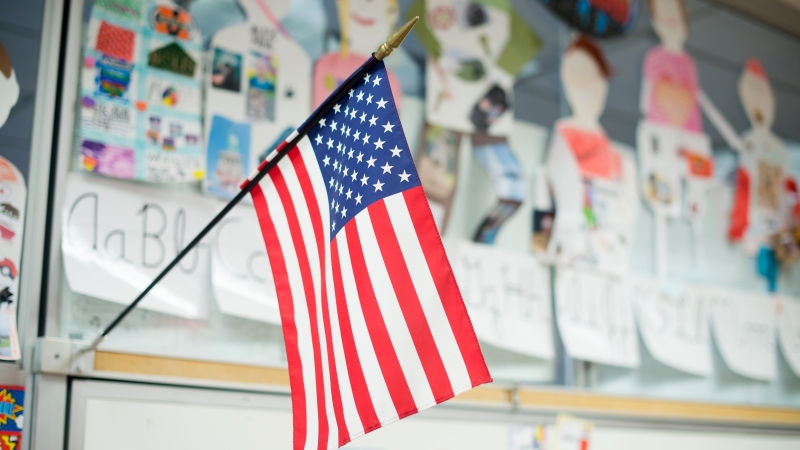
Virginia Board of Education Meeting Summary
1-24/25-2018
Virginia Board of Education Meeting Summary
1-24/1-25 January 2018
Committee on School and Division Accountability
The Committee reviewed the goals for school recognition that require that the revised program, including the alignment of awards with new accreditation model and Board of Education priorities; promoting meaningful goal-setting for schools and divisions; and utilizing transparent, straightforward criteria.
The Committee received an update on the criteria to recognize schools and school divisions. The two types of awards being recommended include 1) data-informed and centrally-identified awards based on exemplary performance on any school quality indicator, with VDOE identifying eligible schools and determining final awards, and 2) program-specific, locally-nominated awards focused on innovative programs and services addressing Board of Education priority areas, with schools and divisions self-nominating and vetting handled through regions.
The Exemplar award for School Quality would require eligible schools to be rated as Accredited; and that the school performs at or above an exemplar standard on one or more school quality indicators such as English achievement (all students or all student groups), math achievement (all students or all student groups), science achievement, chronic absenteeism, graduation and completion index, dropout rate, and college, career, and civic readiness (beginning SY2021-2022).
The Exemplar award for Achievement Gaps would require that eligible schools have at least ten students in two of three vulnerable student population groups; and that the school demonstrates reductions in the failure rate on English reading and writing or math assessments in all student reporting groups for two consecutive years.
Innovative Practice Awards would require self-nomination based on eligibility requirements, including strategic initiatives addressing a priority area which have been implemented for at least two years with a demonstrated impact. Priority areas for such awards include: closing achievement gaps in high poverty schools; increasing students’ exposure to STEM content areas; engaging families in learning; increasing access to technology; developing a supportive school climate; and retaining high-quality teachers.
Staff recommended a Code change to align award requirements with the new accreditation model. If approved, the Code change would become effective July 1, 2019 and implemented beginning Fall 2019. The timeline would be as follows:
- Spring 2018: VIP awards given based on 2016-2017 data
- Winter 2019: Code change proposed
- Spring 2019: VIP awards given based on 2017-18 data
- Spring 2019: Code change effective
- Fall 2019: Data collection and application process for new awards criteria begins
- Spring 2020: VIP awards given based on 2018-19 data
- Spring 2020: First awards issued using new criteria; announcement aligned with school Accreditation
The plan is for staff to present specific criteria recommendations to the Board for first review in March and final review in April.
Committee on Evidence-Based Policymaking
The Committee discussed its charge and initial tasks, including the areas that need to be addressed in order to close achievement gaps, which were identified as: inequities in funding; access to high-level curricula; access to good teachers; and how school discipline is imposed.
Additional areas that the Committee discussed for consideration include:
- Extra academic supports for low performing students;
- Access to technology;
- Comprehensive family services;
- Mentorships;
- Trained counselors.
The Committee discussion focused on the following questions: 1) What is equality in education? and 2) What is equity in education? The Committee agreed that equality in education is achieved when students are all treated the same and have access to similar resources. Equity is achieved when all students receive the resources they need so they graduate prepared for success after high school. The overall goal is to provide a quality education for every child in the Commonwealth based on needs and not on access.
- Do teachers need to be distributed differently around the State in order to better reach students?
- What supports are necessary to provide access to good teachers?
- How do we acquire teachers in the regional areas where they are needed the most?
Business Meeting
Virginia Guidelines for the Prevention of Suspension and Expulsion of Young Children: Supporting Children with Challenging Behaviors in Early Childhood Settings
The Board approved the Virginia Guidelines for the Prevention of Suspension and Expulsion of Young Children: Supporting Children with Challenging Behaviors in Early Childhood Settings. The approved guidelines are for teachers and administrators supporting children in early care, and education programs. The primary purpose of these Guidelines is to provide guidance regarding policies and best practice in implementing developmentally appropriate experiences for children in early care and education programs (0-5 years), that can prevent suspension and expulsion. Recommended research-based practices have been included to promote collaboration between family and professionals, as well as focus on effective classroom management and social-emotional skill development to support young children’s healthy development.
Additional information regarding these guidelines can be found under Agenda Item C at: http://www.doe.virginia.gov/boe/meetings/2018/01-jan/agenda.shtml.
Request from Albemarle County Public Schools to Waive 8VAC20-160-50 (requirement to weight AP and IB courses) and Increase Graduation Requirements
The Board waived first review and approved the following request from Albemarle County Public Schools:
- A waiver to the requirement to provide weighted credits for Advanced Placement (AP) and International Baccalaureate (IB) courses, as required by 8VAC20-160-50 of the Board’s Regulations Governing Secondary School Transcripts; and
- An additional local graduation requirement, to require a freshman seminar course for first-time ninth graders beginning in 2018-2019.
State Approved Textbooks for K-12 History and Social Science
The Board accepted for first review the proposed state approved textbooks for K-12 history and social science. Between June 2017 and August 2017, committees of Virginia educators used the approved process to receive, review and submit textbook correlation information to the VDOE (Virginia Department of Education). Committee members conducted analyses of the materials using evaluation criteria for Standards of Learning (SOL) correlation, content, bias, and design for instructional planning and support. In November 2017, VDOE staff aggregated the analyses of committee members and shared consensus evaluations with publishers in December 2017. Publishers were given an opportunity to respond to the committees’ consensus. Requests by publishers for reconsideration were examined carefully by VDOE staff prior to the Board receiving the list of proposed approved textbooks. The VDOE will now conduct a 30-day public comment period, with the intent to bring to the Board a final list of proposed approved textbooks for K-12 history and social science in March 2018.
The list of proposed recommended history and social science textbooks, including the status of the Publisher’s Certification and Agreement forms for each can be found under Agenda Item E at: http://www.doe.virginia.gov/boe/meetings/2018/01-jan/agenda.shtml.
State Approved Textbooks for K-12 Mathematics
The Board accepted for first review the proposed state approved textbooks for K-12 mathematics. In June 2017, committees of Virginia educators received the mathematics textbook samples along with K-12 Mathematics Standards of Learning textbook correlations from publishers. Between June, 2017 and August, 2017, members of these committees conducted individual analyses of the materials using evaluation criteria for Standards of Learning (SOL) correlation, content, bias, and design for instructional planning and support. In September 2017, VDOE staff aggregated the analyses of committee members and shared consensus evaluations with publishers. Publishers were given an opportunity to respond to the committees’ reviews and recommendations in November 2017. Requests by publishers for reconsideration were examined carefully by VDOE staff, and staff members prior to staff preparing the proposed list of approved mathematics textbooks for presentation to the Board. The VDOE will now conduct a 30-day public comment period, with the intent to bring to the Board a final list of proposed approved textbooks for K-12 mathematics in March 2018.
The list of proposed recommended mathematics textbooks, including the status of the Publisher’s Certification and Agreement forms for each and be found under Agenda Item F at: http://www.doe.virginia.gov/boe/meetings/2018/01-jan/agenda.shtml.
Technical Amendments from the Office of the Attorney General to the Proposed Regulations Governing the Use of Restraint and Seclusion in Public Schools in Virginia
The Office of the Attorney General communicated to VDOE staff several concerns regarding the Proposed Regulations Governing the Use of Restraint and Seclusion in Public Schools in Virginia. The Office of the Attorney General indicated that the changes in the draft regulations would be required in order for it to certify the proposed regulations. These changes clarify that physical restraint and seclusion cannot be used for the sole purpose of protecting property, and indicated that the use of restraint and seclusion should be terminated as soon as the imminent risk of serious physical harm or injury to self or others presented by the emergency situation has dissipated. A redlined copy of the proposed regulations with the changes directed by the Office of the Attorney General can be found under Agenda Item H at: http://www.doe.virginia.gov/boe/meetings/2018/01-jan/agenda.shtml.
Reports
The Board received reports on the Timeline for the approval of K-12 English Language Arts Textbooks (The Department of Education will begin the process of textbook review for K-12 English textbooks in February 2018 the Department will invite publishers to submit textbooks for review that are correlated to the Virginia 2017 English Standards of Learning) and an interim report on the 2018 General Assembly Session.
Discussion of Current Issues
Addressing the Teacher Shortage and the Work Ahead on the Comprehensive Plan: 2018-2023
The Board set out a process to address Chapter 542, Regulations Governing the Review and Approval of Education Programs in Virginia, 8VAC20-542-20. The Board requested staff to review the research related to teacher shortage, 4 vs 5-year degrees, and whether a 4 or 5-year degree program is better/more applicable for teacher certification in specific subject areas. This information will be discussed at the Board’s March meeting.
